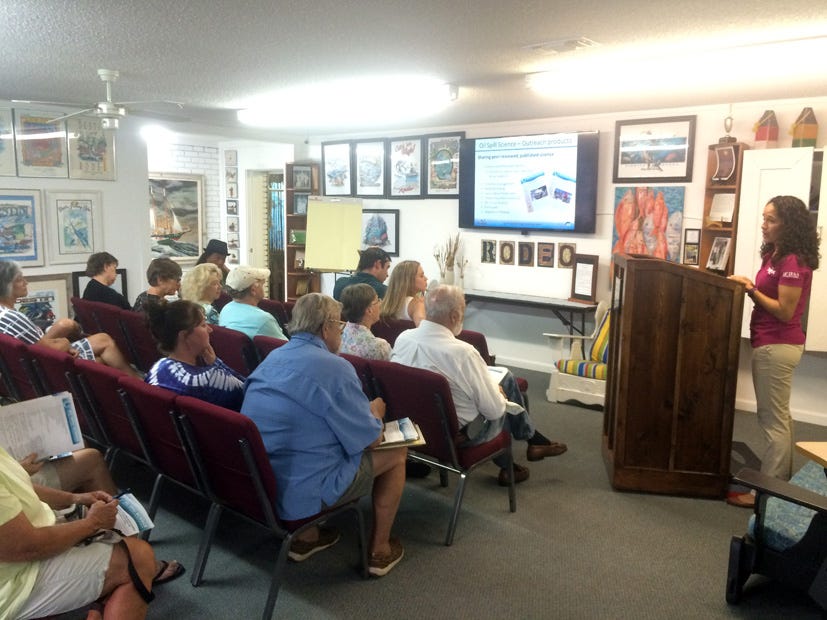
Approximately 172 million gallons of oil entered the Gulf of Mexico when the Deepwater Horizon oil spill occurred about 50 miles offshore of Louisiana in April 2010.
Locals and tourists still have questions. The Okaloosa County University of Florida Institute of Food and Agricultural Sciences Extension Office invited a Gulf of Mexico oil spill scientist, Dr. Monica Wilson, to help answer the five most common questions about the event. Wilson, with the Florida Sea Grant College Program in St. Petersburg, uses her physical oceanography background to model circulation and flushing of coastal systems in the region and the impacts of tropical storms on these systems. She focuses on the distribution, dispersion and dilution of petroleum under physical ocean processes and storms.
During the July 11 event — hosted by UF and the Destin History and Fishing Museum — Wilson covered topics such as whether Gulf seafood is safe to eat, how the oil spill affects wildlife, cleanup techniques used, and how they are implemented.
This was the first in a possibly ongoing lecture series, bringing more scientific information to our county. “The Destin History and Fishing Museum has a vision that includes expanding its programs to include a lecture series," said the museum's executive director, Kathy Blue.
The oil spill science outreach program allows Sea Grant specialists to learn what types of information target audiences want and develop tailor-made products for them. Outreach specialists produce a variety of materials, such as fact sheets and bulletins.
See https://gulfseagrant.wordpress.com/oilspilloutreach/ for more information on the oil spill.
Laura Tiu is an agent at the University of Florida's Institute of Food and Agricultural Sciences Extension office in Crestview.
This article originally appeared on Crestview News Bulletin: Oil spill science seminar kicks off possible lecture series
